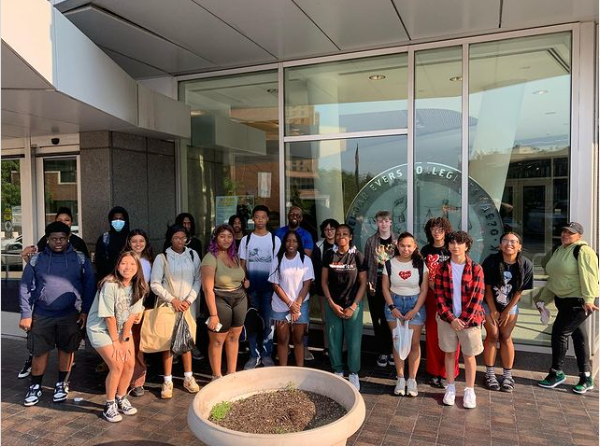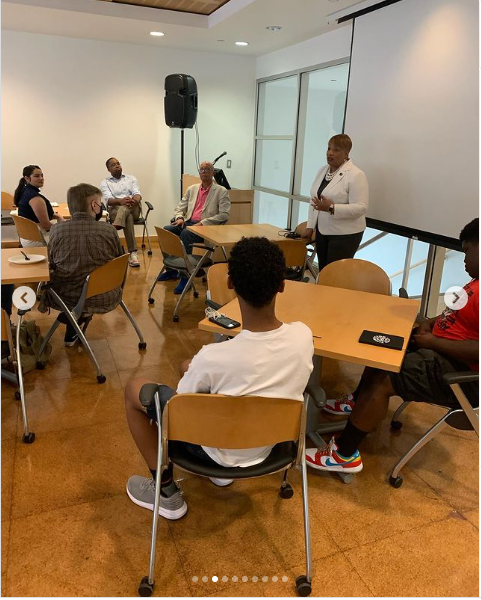Medgar Evers College Partners Up For Timbuctoo Project
Medgar Evers College Partners Up For Timbuctoo Project
Program studies climate change impact while offering road to path for environmental careers for students
The intersection of social justice and climate justice can be found at the center of the Timbuctoo Climate Science and Careers Summer Institute, a collaboration between Medgar Evers College (MEC) and the State University of New York College of Environmental Science and Forestry (ESF). The goal of this program is to have students not only see how climate change affects their communities from a scientific perspective, but to introduce them to the opportunities they might have in environmental science careers via three two-week sessions in July and August. SUNY ESF and MEC will enable 48 New York City high school-aged participants to visit the Adirondacks and Syracuse while engaging in classroom and field experiences.

The $2.1-million dollar funding requested for the institute was legislatively midwifed by New York State Senator Zellnor Myrie, Assemblymember Michaelle Solages and the state’s Black, Puerto Rican, Hispanic Asian Legislative Caucus in conjunction with a number of advocates including Aaron Mair, head of the Adirondack Council’s “Adirondack Forever” campaign. The MEC side of the partnership is being overseen by Dr. Alicia Reid, chair of the Chemistry and Environmental Science (CES) department and Professor Wallace Ford, who is with the Department of Public Administration.

As someone with a doctorate in botany, MEC President Patricia Ramsey is a firm supporter of a program that falls so close to her scientific discipline.
“The Timbuctoo project is a wonderful opportunity for urban students to experience nature in the Adirondack Mountains, in the vicinity of the Black settlement known as Timbuctoo. Student participants learn about the environment, with an emphasis on climate, and are exposed to climate-related careers. As a botanist who has researched plant ecological distribution and who has collected more than 100 species of Agave in the Sonoran Desert, this project is near and dear to my heart.”
Ford has spent his career delving into social justice and racial justice and he feels Timbuctoo connects the dots between the larger world and the day-to-day for students that are participating.
“The idea is to make sure students realize that there is no dividing line between science and public policy,” he said. “You can’t have one without the other. The Timbuctoo Project is an excellent example of the importance of focus on various aspects of urban and non-urban impacts of climate change. The Departments of Public Administration and Chemistry and Environmental Science at Medgar Evers College are an example of CUNY in the present preparing for the future.”
SUNY ESF partner Paul Hai is also very optimistic about what the Timbuctoo Institute can provide to the students who go down this path.
“We’re working to resolve the challenges our society faces-including the cascade of impacts from a changing climate, and addressing systemic environmental and social injustices,” he said. “We do that by bringing together public institutions and agencies, private organizations and businesses, elected leaders and government, all with the goal of providing information and experiences for youth of today to become the leaders and problem solvers of tomorrow. The beauty of the partnership between Medgar Evers College and ESF is that two institutions are able to connect communities in our respected areas of expertise in order to create a comprehensive whole that we hope is a really powerful program.”
